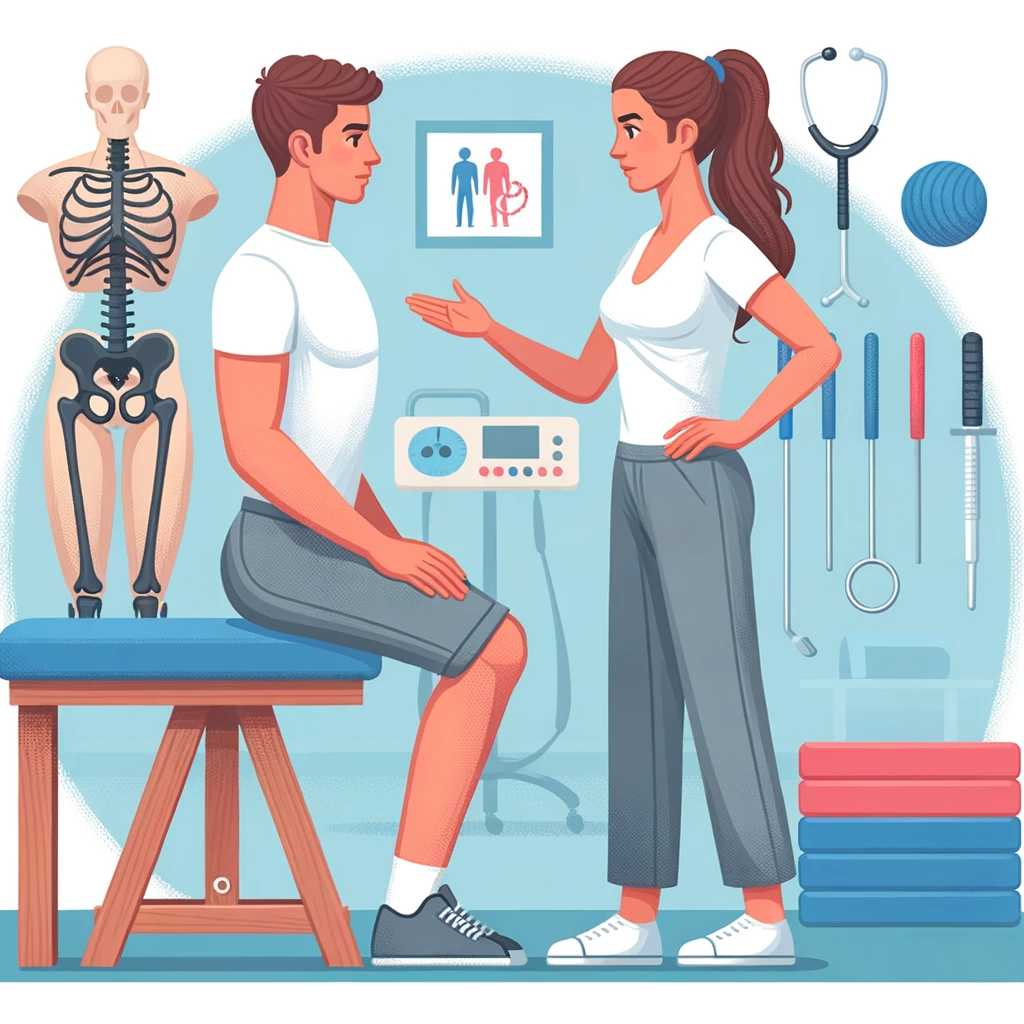Back
Difficulty emptying bladder (men)
By Shannon Strauch, PTA, STMT-1 on 8/12/2024

Introduction
Difficulty emptying the bladder, medically known as urinary retention, is a common yet often overlooked issue among men. It can manifest as a weak urine stream, straining during urination, a sensation of incomplete bladder emptying, or even complete inability to urinate. While various factors contribute to this condition, one effective but less-discussed intervention is pelvic floor therapy. This blog delves into the causes of urinary retention in men and explores how pelvic floor therapy can provide relief.
Common Causes of Urinary Retention in Men
Benign Prostatic Hyperplasia (BPH):
As men age, the prostate gland can enlarge, pressing against the urethra and hindering urine flow.Prostatitis:
Inflammation or infection of the prostate can cause swelling, leading to urinary difficulties.Urethral Stricture:
Scar tissue in the urethra can narrow the passage, restricting urine flow.Neurological Disorders:
Conditions like Parkinson's disease, multiple sclerosis, or spinal cord injuries can disrupt nerve signals involved in bladder control.Medications:
Certain drugs, especially antihistamines, decongestants, or antidepressants, can interfere with bladder function.Pelvic Floor Dysfunction:
Weakness, tightness, or poor coordination of the pelvic floor muscles can impede proper bladder emptying.
The Role of the Pelvic Floor in Bladder Function
The pelvic floor is a group of muscles and connective tissues stretching from the pubic bone to the tailbone, forming a hammock-like structure. These muscles support pelvic organs, including the bladder, and play a pivotal role in urinary control. Proper relaxation and contraction of the pelvic floor muscles are essential during urination. Overactive or tight pelvic floor muscles can obstruct urine flow, leading to symptoms of urinary retention. Conversely, weak muscles might fail to provide adequate support, causing other urinary issues.
What is Pelvic Floor Therapy?
Pelvic floor therapy is a specialized form of physical therapy focusing on the assessment and treatment of pelvic floor dysfunctions. It employs a combination of exercises, manual techniques, biofeedback, and education to restore optimal pelvic floor function.
How Pelvic Floor Therapy Addresses Bladder Emptying Difficulties
Muscle Assessment:
A pelvic floor therapist evaluates the strength, flexibility, and coordination of the pelvic floor muscles. Identifying overactive, tight, or weak muscles is crucial for tailoring an effective treatment plan.Manual Techniques:
Therapists use hands-on methods to release muscle tension, trigger points, and adhesions in the pelvic floor, promoting relaxation and improving muscle flexibility.Biofeedback Training:
Biofeedback provides real-time information about muscle activity. This feedback helps patients learn to control and coordinate their pelvic floor muscles effectively.Tailored Exercises:
Depending on the assessment, therapists prescribe specific exercises to strengthen weak muscles or relax overactive ones. Techniques like deep breathing, stretching, and relaxation exercises can also aid in muscle modulation.Education:
Understanding the anatomy and function of the pelvic floor empowers patients. Therapists provide guidance on bladder habits, postural alignment, and lifestyle modifications to support pelvic health.
When to Seek Help
If you're a man experiencing persistent urinary difficulties, it's essential to consult a healthcare professional. While pelvic floor therapy offers promising results, underlying medical conditions need to be ruled out or addressed concurrently. Early intervention can prevent complications and improve quality of life.
Conclusion
Urinary retention in men can stem from various causes, but pelvic floor dysfunction is a significant and treatable contributor. Pelvic floor therapy offers a non-invasive, effective approach to restoring proper bladder function. By addressing muscle imbalances and educating patients, this therapy paves the way for lasting relief and improved urinary health. Looking to optimize your well being with pelvic floor physical therapy? Reach out to us at Pelvic Health Center in Madison, NJ to set up an evaluation and treatment! Feel free to call us at 908-443-9880 or email us at receptionmadison@pelvichealthnj.com.
Read More:
How Chronic Pelvic Congestion in Men Contributes to Prostatitis By Shannon Strauch, PTA, STMT-1 on 12/11/2024 How lymphatic issues can cause symptoms of prostatitis Prostatitis and Tight Pelvic Floor Muscles: A Comprehensive Guide By Shannon Strauch, PTA, STMT-1 on 12/10/2024 How a tight pelvic floor can be the reason for prostatitis symptoms
Are you ready to live pain free?
Request An Appointment